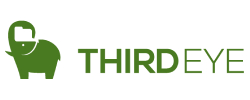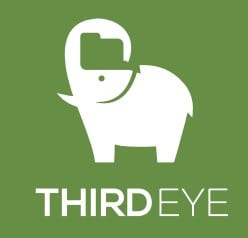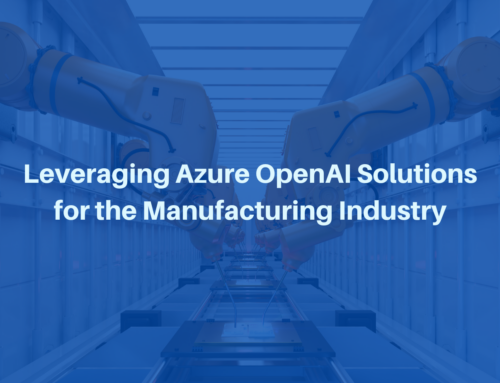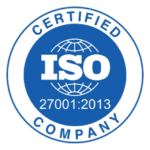Anheuser-Busch InBev, headquartered in Leuven, Belgium, isn’t just a beverage company, it’s a technology company. From its Beer Garage in Silicon Valley to its Global Analytics Center in Bengaluru, India, the company known as AB InBev is pushing the innovation envelope. The company is using technology to drive commercial and operational growth and increase sustainability by moving its IT operations to the cloud, and it is gaining more significant insights into business operations by breaking down data silos and building a global analytics platform. AB InBev chose Microsoft Azure as the best platform to support these game-changing advances.
With the Azure platform and services, we’re transforming how we do business, interact with our suppliers, and connect with our customers.
Chetan Kundavaram: Global Director
Budweiser, Corona, Stella Artois, Beck’s, Foster’s… If you’ve ever enjoyed a cold beer at the end of a long, hot day, there’s a good chance your beer was brewed by Anheuser-Busch InBev. Moreover, while it’s easy to pick up a six-pack of your favorite brand from the local store, or grab a draft in the neighborhood pub, a lot of work and technology go into brewing that beer and getting it to you.
From barley fields where drones and AI predict crop yields and optimize the growing environment to the company’s Beer Garage research facility in Silicon Valley where emerging technologies drive business innovation, AB InBev is at the forefront of high-tech beverage creation and distribution. There’s more motivating these efforts than just profit and loss. “We’re involved in many better-world initiatives,” says Jay Emery, Senior Director of Global IT Enterprise Architecture at Anheuser-Busch InBev. “We consume a large amount of energy and raw materials—water, grains, hops—and we’re focused on giving back. We’ve set ambitious sustainability goals to achieve by 2025 that will directly benefit our farmers, their communities, our packaging, and the world.”
Getting out of the datacenter management business
AB InBev operates in more than 50 countries on six continents, and it’s challenging to manage technology platforms on such a global scale. The company divided its business into six different zones, each one managing its own IT processes. AB InBev also had 16 corporate datacenters. As a result, the company had siloed information and operations, duplication of research efforts, and difficulty embracing innovation company-wide. “The first thing we had to do was centralize IT functions, and the cloud was the obvious way to do that,” says Emery. “We already had a strong relationship with Microsoft, and we saw Azure as the natural choice for us because we’d get what we call the three s’s: speed, scale, and security.”
Emery’s colleague Chetan Kundavaram, Global Director at Anheuser-Busch InBev, concurs. “We’re in the beverage business, not the datacenter management business. By moving to Azure, we get away from managing core infrastructure and instead focus on making innovative services available to the company. We plan to consolidate our 16 datacenters down to 7 strategically placed facilities by 2020.”
AB InBev is already seeing success in its move to a world where physical datacenters are no longer mandatory. The company is using application modernization and containerization strategies with technologies like Docker and Kubernetes to move applications into Microsoft Azure in the most efficient way. The first phase of migration focused on Windows workloads and took a lift-and-shift approach, and the next phase will involve refactoring remaining applications. AB InBev is also increasing agility by shifting its legacy data warehouses to an Azure platform as a service (PaaS) environment using Azure SQL Data Warehouse. As a result, AB InBev is reaping benefits in each of its datacenters and is well on track to meeting its consolidation goal.
“We’re now much more agile and flexible when it comes to application development,” says Kundavaram. The company uses the PaaS and infrastructure as a service (IaaS) capabilities in Azure, along with Azure Marketplace solutions, to quickly come up with blueprints for new applications and get them to market. “Producing new apps could take a very long time when we were tied to physical datacenters,” he continues. “Now we build solutions faster and start reaping the value right away. The cloud is also a big factor in our sustainability initiatives, because we’re cutting way back on energy usage.”
Bringing data together on a global scale
The datacenter migration isn’t AB InBev’s only worldwide data effort—the company is also developing a global analytics platform to gain valuable insights into the vast amounts of data that it harvests from each step in its manufacturing process. AB InBev takes advantage of multiple Azure services to make its platform both flexible and scalable.
AB InBev makes extensive use of Hadoop for big data analytics processes, so the Azure HDInsight service has been very important. By combining this with Azure Data Lake and Azure Blob storage, the company can store petabytes of data and choose to turn computing clusters on or off as needed, rather than building them out of physical servers. “The transient nature of our Azure data services means we can be nimbler and more cost-efficient—what in the past would have been capital expenditures on infrastructure now become investments in innovation,” says Kundavaram.
One of the major factors making worldwide analytics possible for AB InBev is building a global analytics platform using SQL Data Warehouse, bringing together data from multiple departments, including sales, marketing, logistics, and human resources in the canonical enterprise data warehouse. AB InBev takes advantage of the solution’s petabyte scale and industry-leading query performance to bring all its structured information into one place where it is easier to analyze. “We leveraged the elasticity of SQL Data Warehouse to scale the instance up or down, so that we only pay for the resources when they’re in use, significantly lowering our costs,” says Kundavaram. “This architecture performs significantly better than the legacy on-premises solutions it replaced, and it also provides a single source of truth for all of the company’s data.”
AB InBev Global Analytics Platform Architecture
Driving business analytics with global data
AB InBev has already started creating line-of-business applications built on this newly developed analytics infrastructure. The first of these is the Smart Barley project. AB InBev is among the world’s top buyers of barley, and it purchases barley grown by natural means rather than genetic modification, so the company has a great interest in ensuring the best possible crop yields and quality. It collects enormous amounts of real-time data about barley crops and uses its new Azure-based global analytics platform to help farmers determine things like when to plant seeds or how much fertilizer to use to optimize their productivity, profitability, and natural resource efficiency. “Beer is brewed from four key ingredients found in nature: water, barley, hops, and yeast,” explains Emery. “Sustainability isn’t just related to our business, it is our business. Brewing our quality beers relies on a healthy natural environment and thriving communities.”
Barmes is another agricultural project that is related to Smart Barley. As part of the project, AB InBev flies drones over barley fields and takes pictures of the plants. The company uses Azure Machine Learning services to analyze this visual data combined with information about hydration, soil composition, and other crop data from barley fields around the world. AB InBev uses the results to better predict the cost and availability of barley globally and shares its data with farmers so that they can improve growing environments and maximize sustainability.
Another business application that uses the analytics platform is the Customer 1:1 project. It aims to get “the right message to the right consumer at the right time,” which could take many forms, including texting or emailing customers on their birthday and offering a special promotion for their favorite beer. The company is consolidating all this data and moving it to the cloud, where AB InBev will perform advanced analytics to extract more business value from existing information and build customer loyalty.
“We’ve made a big change in the way we connect with our customers,” says Emery. “It used to be that all you needed to do was plaster an ad on a billboard and everyone passing by would see it. But now more and more of our customers are millennials and digital natives who’re used to social media and expect a more personalized experience. By using sophisticated data analysis, we are able to make a personal connection that stands out in the vast sea of information that washes over us all every day. It’s a much more targeted approach.”
Launching new initiatives for new insights
The AB InBev analytics boom sparked by its move to Azure has led to the creation of a new Growth Analytics Center in Bengaluru (Bangalore), India. The center is staffed with data scientists who look at information from a wide variety of sources and develop models that the company uses for forecasting. “Our data scientists use AI and Azure machine learning capabilities to look at our current and historical data,” explains Kundavaram. “They’re identifying patterns we can use to optimize prices and promotions and achieve the highest possible levels of customer retention and adoption.”
Data scientists at the center are starting to work with additional sources of customer data to better understand customer segments and preferences—not just their beverage preferences, but also beverage-plus-food correlations. The scientists can determine what beverage goes well with what type of food for a particular customer segment and target prices and promotions accordingly. AB InBev is also gaining better insight into connections between location and brand preferences, so it can make products available in different regions and different types of venues, such as bars or clubs, and match the right beer with customers’ moods and tastes.
Finding new data sources and new business innovations
Data is an important currency at AB InBev, and the company is constantly looking for new ways to create more meaningful customer connections and better meet the needs of the points of connection with customers, such as sales. It is currently pilot testing an RFID program in its warehouses using Azure Internet of Things (IoT) services including Azure IoT Hub and Azure Stream Analytics. With this program, AB InBev tracks pallets of beer from the brewery to the wholesaler to the retailer in order to optimize inventory, reduce out-of-stock scenarios, and better forecast future retailer consumption trends. “This gives us very microlevel data, so that we can identify every pallet and every case and know where it was brewed, when it got to the wholesaler, all the way to when somebody bought it and it left the store,” says Kundavaram. “We capture and process real-time data using Azure IoT services, and the data feeds into our global analytics platform so we can precisely track the movement of inventory around the world.”
From the datacenter migration to RFID tracking to new projects migrating SAP applications to Azure, AB InBev is using technology to change the way it does business. “We’re not just a beer company, we’re a technology company,” says Emery. “By moving to Azure and consolidating data into a single source of truth using Azure SQL Data Warehouse, we’ve got visibility across our global business. This has helped us drive operational changes and efficiencies, and it’s sparked discussions about all sorts of new and exciting ways we can move AB InBev forward—discussions we wouldn’t have had before because everyone was looking at just their data. It’s been a game-changer for us.”
“Microsoft has been a key part of our success,” adds Kundavaram. “We get the software solutions and expertise from Microsoft that we need to help us be an industry leader in technological innovation. With the Azure platform and services, we’re transforming how we do business, interact with our suppliers, and connect with our customers. We’ve turned a business that started in 1852 into a true twenty-first-century operation and planted the seeds of success for many years to come.”
Source: Anheuser-Busch InBev brews up game-changing business solutions with Microsoft Azure







